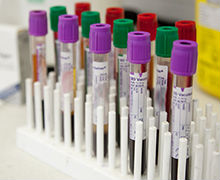Emergency Equine Vet:
Breadstone: 01453 811867
Failand: 01275 392956
Stretcholt: 01278 229129
Willesley: 01666 880501
The pre-purchase exam (PPE or vetting) is a thorough clinical exam of the horse on behalf of the prospective purchaser to assess veterinary factors which may affect the horse’s suitability for its intended purpose.
The process of vetting a horse or pony is a standardised 5-stage procedure following outlines from the Royal College of Veterinary Surgeons and BEVA. PPEs are always carried out on the behalf of a specific purchaser with the aim of assessing factors of a veterinary nature that could prejudice the horse's suitability for its intended use. The vet acts wholly in the interest of the purchaser and the opinion provided is tailored to the individual buyer’s needs and intended use for the horse. The PPE provides an assessment of the horse at the time of the examination to help the potential purchaser make an informed decision on the purchase. It is not a guarantee of the horse’s suitability for its intended purpose nor a safeguard against future ailments or injuries.
We carry out pre-purchase examinations on all types of horses and ponies ranging from the family pony to elite performance horses, including those being sold abroad.
Our vets are happy to carry out PPEs on behalf registered and non-registered clients. If the animal is known to us the vet will request permission from the vendor for full disclosure of the horse’s clinical history to the purchaser. If this request is denied by the vendor our veterinary surgeon will decline to perform the PPE as he/she will not be able to act wholly in the interest of the purchaser.
The standard examination is conducted in five stages
This is a thorough clinical examination of the horse at rest.
This is to detect abnormalities of gait and action. Flexion tests of all four limbs and trotting in a circle on a firm surface may be carried out.
The horse is usually ridden for this phase but it may be conducted on a lunge if ridden exercise is not possible for some reason.
The horse is allowed to stand quietly for a period.
The horse is trotted in-hand again to look for any signs of strains or injuries made evident by the exercise and rest stages. Flexion tests may be repeated at this stage.
Any findings and the opinion of the vet will be verbally discussed with the purchaser at the end of the examination and documented in a certificate. We advise that a full 5-stage examination is carried out prior to purchase however we also will undertake a limited examination comprising of only the first two stages if specifically requested to do so.
Depending on a purchaser's wishes, further examinations such as radiography, endoscopy and ultrasound scanning can be included before a final decision is reached. We advise that appropriate insurance is taken out before purchase is finalised.

A blood sample is usually taken for storage (for 6 months) for analysis to detect substances that might have masked any conditions at the time of the vetting should problems arise in the future. Immediate screening can be arranged if desired.
We advise you have a pre-purchase exam first, this is also known as a vetting.
Call your local clinic to book an appointment:
Breadstone: 01453 811867
Cardiff: 01443 225010
Failand: 01275 392 956
Stretcholt: 01278 229129
Willesley: 01666 880501